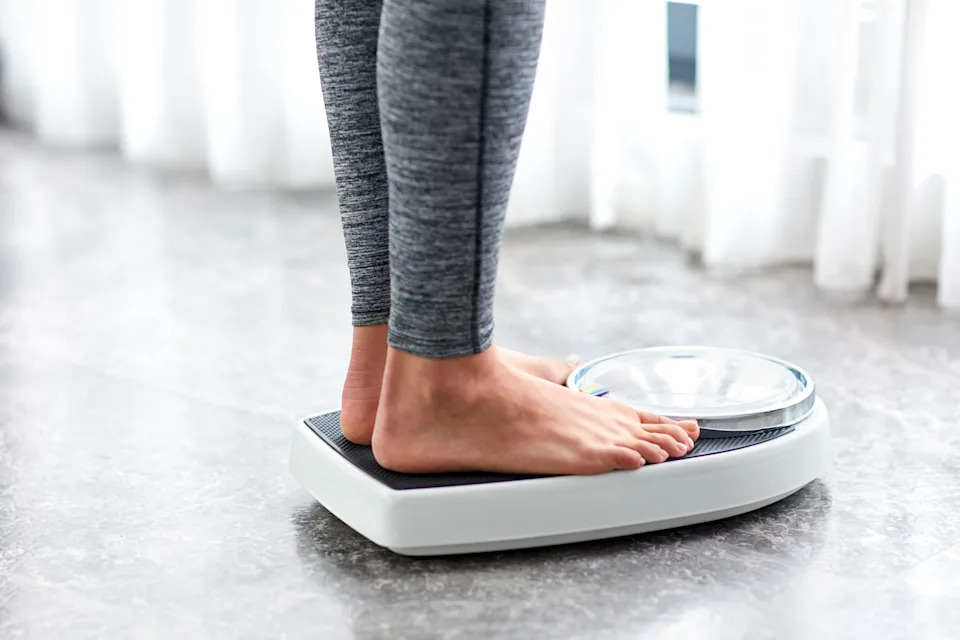Over the past couple of years, all eyes have been on protein as the must-have component in all our diets, but in reality, Britons eat enough of that. Instead, the essential food group that we’re not eating enough of is fibre.
According to the National Diet and Nutrition Survey (NDNS), a staggering 96% of adults and children in the UK don’t eat enough fibre. It’s recommended that adults eat 30g of fibre per day, but we’re only consuming around 16g a day on average.
Fibre is an overlooked but vital part of a daily balanced diet. It keeps regular bodily functions ticking along smoothly, from good metabolism to ensuring healthy bowel movements.
Consuming the right amount is also important in the long run. The British Nutrition Foundation states that eating plenty of fibre helps promote a healthy gut and can reduce the risk of heart disease, stroke, type 2 diabetes, and bowel cancer.
Here are five signs you’re not eating enough:
You’re constipated
Being constipated is unpleasant, but, in most cases, can be easily solved by eating more fibre. (Getty Images)
As fibre helps the digestive system run smoothly, you may find it harder to poo when you’re not getting enough of it in your diet.
According to the NHS, constipation occurs if you have not had a bowel movement at least three times during the last week or you’re going to the toilet less often than usual. Other symptoms include if your poo is unusually large or small and is dry, hard or lumpy.
Being constipated can lead to piles (also known as haemorrhoids), which are swollen veins in the lowest part of the rectum or anus that can cause painful lumps that might bleed or itch.
Ensuring you eat plenty of fibre can help soften stools and keep things moving.
You’re fatigued
A lack of fibre is usually associated with constipation, but tiredness is another sign to look out for. (Getty Images)
Fibre helps slow the release of sugar into the bloodstream, and without it, you are more likely to experience erratic blood sugar spikes and crashes, leaving you feeling frequently fatigued.
This is particularly concerning because modern day diets tend to include a lot of processed foods that are high in fat, salt and sugar. This means the body struggles to maintain stable blood pressure without adequate fibre to help it slow glucose absorption.
A 2023 study also found that consuming more dietary fibre can help improve sleep quality by reducing inflammation and increasing the body’s production of melatonin, a hormone that helps us to sleep.
You have mood swings
Not eating enough fibre can affect your mood and possibly your mental health. (Getty Images)
Blood sugar spikes and crashes can also have an impact on your mood, making you feel energetic and giddy at one moment, then tired and cranky the next. This is also because the body is unable to stabilise glucose absorption at a steady rate without the help of fibre.
Research has also suggested that poor dietary fibre consumption has been linked to mental health issues such as depression and anxiety. Scientists found that high fibre intake had the potential to create a ‘protective effect… on anxiety’, while an increased intake of total dietary fibre is associated with lower odds of depression.
You’re gaining weight
Fibre can help you feel fuller for longer, but without enough of it, you may overeat and gain weight. (Getty Images)
Eating enough fibre helps promote feeling full and satisfied for longer, as well as regulating your appetite. But a diet that is low in fibre means you feel less full and get hungry quicker, leading to overeating and, eventually, weight gain.
Upping your fibre consumption could be the key to shedding the pounds. According to the BDA, studies show that people who are overweight or living with obesity tend to lose weight if they stick to a high-fibre diet.
Your skin health is poor
Skin health is closely linked to gut health, and not eating enough fibre to promote a healthy gut microbiome can impact your skin. (Getty Images)
Emerging studies have suggested that the gut microbiome has a more pronounced impact on skin health than previously understood, and not eating enough fibre can significantly affect both.
The gut microbiome, also known as gut flora, depends on healthy gut bacteria to promote healthy bodily functions. Eating a diet rich in dietary fibres from fruit, vegetables, and wholegrains can help promote beneficial gut bacteria.
However, a lack of fibre results in a less diverse microbiome, which in turn can lead to an imbalance known as dysbiosis. This occurs when the gut does not get enough beneficial microbes and instead sees a growth in harmful microbes.
The condition has been associated with skin issues like acne, dermatitis, psoriasis, dandruff, and – according to a 2021 study in the journal Microorganisms – even skin cancer.
Easy ways to eat more fibre
Swap white bread for wholemeal
Eat the skins on fruit and vegetables like apples and potatoes
Choose higher-fibre breakfast cereals like Weetabix or porridge oats
Add pulses such as lentils and beans to curries and salads
Sprinkle seed mixes that often include pumpkin seeds, chia seeds, sunflower seeds, sesame seeds, and linseeds on top of salads and soups
Swap plain crackers for rye crackers or oatcakes to eat with cheese
Read more about fibre and gut health:

